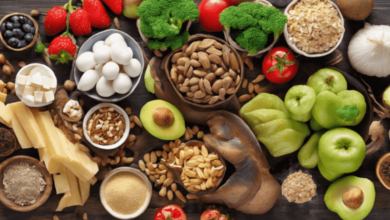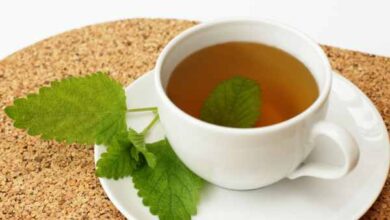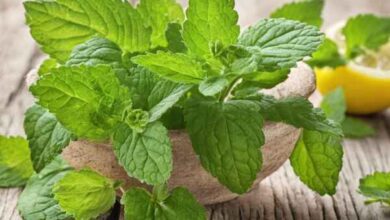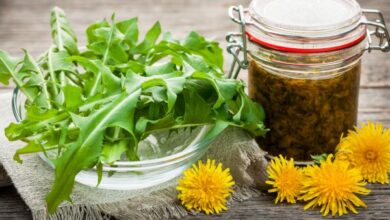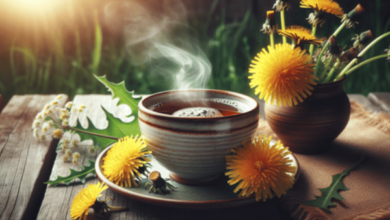5 Natural Ways to Lower Blood Pressure and Improve Heart Health
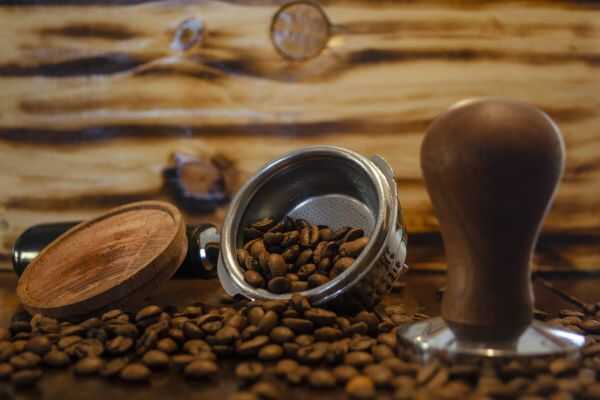
Do you have high blood pressure? You’re not alone. Millions of people worldwide struggle with hypertension, a condition that can lead to serious health complications. But the good news is, you don’t have to rely solely on medication to manage your blood pressure. There are proven natural ways to lower your blood pressure and improve your heart health!
This article explores these effective strategies, offering practical advice on natural remedies and maintaining a healthy heart.
Join us as we unlock a healthier heart through these:
5 Natural Ways to Lower Blood Pressure and Improve Heart Healthpen
1. Exercise Regularly

Benefits of Cardiovascular Activities
Regular exercise strengthens the heart, allowing it to pump more blood with less effort and reducing the force on the arteries, thereby lowering blood pressure.[13]
Engaging in activities that increase your heart and breathing rates not only lowers both systolic and diastolic blood pressure but also helps maintain a healthy weight, a key factor in controlling blood pressure.[7][8]
Moreover, exercise has been shown to lower inflammation, improve the function of blood vessel linings, and enhance the body’s response to stress, all contributing to decreased blood pressure.[14].
Recommended Exercise Types
Engaging in regular exercise is one of the most effective natural ways to lower blood pressure. A variety of exercises are beneficial for lowering blood pressure, including aerobic activities like walking, swimming, cycling, and dancing, as well as strength training exercises such as bridges, planks, and squats.[13][14]
Aerobic exercise improves circulation, leading to lower blood pressure and heart rate, while resistance training can help reduce fat and build lean muscle mass, positively affecting blood pressure.[10][14]
Isometric exercises, which involve holding a position without movement, are also effective and provide a low-intensity option that does not stress the joints.[14].
Ideal Exercise Frequency for Lowering Blood Pressure
To achieve the most heart-healthy benefits, it’s recommended to engage in at least 150 minutes of moderate aerobic activity or 75 minutes of vigorous aerobic activity per week, or a combination of both.[13]
Additionally, incorporating moderate- to high-intensity muscle-strengthening activities at least two days per week can further enhance the benefits.[11]
Regular physical activity, even starting from a sedentary level, can lead to clinically significant decreases in blood pressure, with the most pronounced reductions observed in those who are more active.[15][8].
2. Adopt a Healthy Diet

Importance of Reducing Sodium
Lowering your sodium intake can significantly reduce blood pressure, even if you’re already on medication for hypertension.[16]With half of Americans grappling with high blood pressure, understanding the impact of sodium is crucial. This is a key factor to consider when exploring natural ways to lower blood pressure.[16]
Despite the necessity of sodium for bodily functions, excessive amounts can elevate blood pressure, and sensitivity varies among individuals.
Considering salt substitutes can be a helpful strategy for those looking to reduce sodium intake.[16]Remarkably, a low-sodium diet led to a decrease in systolic blood pressure for nearly 75% of participants, showcasing the broad benefits of sodium reduction.[16][17].
Read also: 15 Best Foods to Lower High Blood Pressure Naturally
Increasing Potassium Intake
Potassium plays a vital role in managing high blood pressure by mitigating the effects of sodium and easing blood vessel tension.[19][20]Adults should aim for 3,500 to 5,000 mg of potassium daily to combat hypertension.[19]
Incorporating potassium-rich foods like bananas, sweet potatoes, and spinach into your diet can significantly benefit heart health.[19][20].
Incorporating Heart-Healthy Foods
Adopting a diet rich in fruits, vegetables, whole grains, and low-fat dairy can manage blood pressure and reduce risks of heart disease by providing essential dietary fiber and lean protein, both crucial for a healthy heart. Natural ways to lower blood pressure often focus on dietary changes, and this approach is no exception.
Including foods high in antioxidants, such as dark chocolate, can also offer additional health benefits due to their flavonoid content.[22][23][24].
Limiting saturated fats, sodium, and added sugars is also key [22][24]The DASH diet, focusing on healthy food sources while restricting red meat and sweets, is particularly effective for blood pressure management and limits the intake of processed foods.[22]
Consider options like canned or frozen fruits and vegetables, which are as nutritious as fresh ones, to make heart-healthy eating more accessible and affordable.[22].
By focusing on these dietary adjustments, you can take significant strides in lowering your blood pressure and enhancing your heart health.
Read also: 20 Foods to Avoid With High Blood Pressure
3. Manage Stress Effectively
Impact of Chronic Stress on Blood Pressure
Chronic stress plays a significant role in elevating blood pressure levels. When faced with prolonged stress, the body releases hormones like cortisol and adrenaline, leading to constricted blood vessels and a faster heartbeat. Over time, this response can contribute to the development of hypertension or high blood pressure.[33]
Understanding the connection between long-term stress and blood pressure is crucial, as managing stress can be one of the most effective natural ways to lower blood pressure and lead to healthier heart function and reduced risk for conditions like heart attack and stroke.[28].
Stress-Relief Techniques
To combat the effects of stress on blood pressure, adopting effective stress-relief techniques is essential. Regular exercise, such as walking or yoga, can alleviate stress, tension, and depression.[28]
Maintaining social connections by spending time with friends and family, ensuring adequate sleep, and fostering a positive attitude through practices like keeping a gratitude journal are also beneficial.[28]
Additionally, engaging in hobbies and relaxation techniques, including meditation and listening to music, can significantly reduce stress levels.[30].
Read also: 5 Morning Tricks for A Less Stressful Day
Breathing Exercises and Mindfulness
Breathing exercises are particularly effective in managing stress and lowering blood pressure. Techniques such as Sama Vritti, or equal breathing, help clear the mind and balance the body, providing a calming effect that slows the heart and stabilizes blood pressure.[31]
The practice of deep breathing for a few minutes each day can lower systolic blood pressure by up to 10 points, offering an alternative to medication for those with stage 1 hypertension.
Deep breathing exercises can be a quick and effective method for those wondering how to lower blood pressure instantly.[32]
Furthermore, mindfulness practices, including meditation, activate the parasympathetic nervous system, promoting relaxation and reducing negative thoughts, which in turn lowers blood pressure and improves cardiovascular health.[33].
Read also:10 Foods That May Cause Depression
4. Monitor Caffeine Intake

Caffeine’s Short-term Impact
Caffeine can increase heart rate and blood pressure in some individuals due to the release of noradrenaline and norepinephrine.[39]While most people tolerate caffeine well, it may lead to palpitations or extra heartbeats in some.[39]
Regular consumption may reduce the risk of atrial fibrillation, but those with serious heart rhythm disorders should avoid caffeine.[39]
Caffeine is also known to stimulate the central nervous system, release free fatty acids from adipose tissue, and increase urination, which can lead to dehydration, emphasizing the importance of adequate water intake.[41].
Recommended Intake Limits
For most adults, up to 400 milligrams of caffeine per day is considered safe, equivalent to four cups of brewed coffee.[40]However, pregnant and lactating women should limit their intake to less than 200 mg daily.[40]
To manage caffeine consumption, consider drinking less soda or coffee each day, opting for green tea, or evaluating lifestyle stressors as alternatives to caffeine.[39]
Read also: 7 Foods You Should Never Have On an Empty Stomach
5. Consider Natural Supplements
Aged Garlic Extract
Garlic supplements, particularly in the form of Kyolic aged garlic extract, have been recognized for their ability to lower blood pressure in hypertensive patients, acting similarly to standard anti-hypertensive medications. This effect is attributed to the involvement of hydrogen sulfide- and nitric oxide-signaling pathways, making it one of the most effective herbs for high blood pressure.[43][44]
A meta-analysis including 12 trials and 553 adults with high blood pressure showed that garlic supplements could lower systolic blood pressure (SBP) by an average of 8.3 mmHg and diastolic blood pressure (DBP) by 5.5 mmHg.[44]
Notably, Kyolic-aged garlic extract does not increase the risk of bleeding and can be safely consumed before surgery, potentially reducing the risk of thrombosis.[44].
Potassium and Magnesium Supplements
The balance between potassium and magnesium is crucial for heart health. These minerals help regulate heart rhythms, ensure proper synthesis of proteins and carbohydrate metabolism, and promote healthy nerve and muscle function along with calcium.[46][47][48]
Potassium and magnesium supplements are often prescribed to heart patients taking diuretics to replace lost electrolytes.[47]
It’s recommended to take these supplements with food and follow the dosage instructions on the label.[47]However, possible side effects include nausea, vomiting, diarrhea, and abdominal discomfort. Serious signs like stomach bleeding, confusion, irregular heartbeat, and shortness of breath require immediate medical attention.[47].
Read also: 10 Essential Benefits of Dandelion Tea: What You Need to Know
Risks and Considerations
While natural supplements can offer benefits for lowering blood pressure, it’s essential to be aware of potential risks and interactions with medications. Certain high blood pressure natural medications can directly affect the cardiovascular system or interfere with blood pressure medications.[49][50]For example, arnica, ephedra, ginseng, guarana, and licorice may affect blood pressure or interact with blood pressure medicines.[49]
Additionally, consuming healthy foods like grapefruit or leafy green vegetables can cause unintended interactions with certain medications.[51]Always consult with a healthcare provider before starting any new supplements, especially if you’re already taking medications for blood pressure or other conditions.[49][50][51].
Conclusion
By incorporating these natural methods into your lifestyle, you can significantly lower your blood pressure and reduce your risk of heart disease.
Remember, these strategies go beyond managing numbers – they pave the way for a healthier, more vibrant you.
Embrace these practices for a long-lasting positive impact on your heart health and overall well-being. This knowledge empowers you to take charge of your health and build a foundation for a lifetime of wellness.pen_sparktunesharemore_vert
FAQs
What are the top natural methods to reduce high blood pressure?
To manage high blood pressure naturally, consider these effective strategies: lose excess weight and monitor your waistline, engage in regular physical activity, follow a healthy diet, minimize sodium intake, limit alcohol consumption, ensure adequate sleep, manage stress, and regularly monitor your blood pressure at home while also attending routine health checkups.
Understanding how to lower blood pressure quickly and how to lower blood pressure quickly can be beneficial in urgent situations. Additionally, exploring the fastest way to lower blood pressure and home remedies to lower blood pressure can provide immediate relief.
2. What is the most beneficial morning beverage for lowering high blood pressure?
For individuals with high blood pressure, substituting morning coffee or sugary juices with healthier options can be beneficial. Recommended drinks include beetroot juice, unsalted tomato juice, green tea, and unsweetened pomegranate juice, as these may help in reducing blood pressure levels.
3. Can you describe the 60-second method to decrease blood pressure?
A quick technique to lower blood pressure is to take a deep breath and relax for 60 seconds. Stress and anxiety elevate blood pressure, so calming down briefly can be effective.
Practicing breathing exercises that slow the heart rate and promote relaxation, along with drinking some water, can also help in reducing blood pressure quickly.
These tricks to lower blood pressure instantly home remedies can be particularly useful in immediate treatment for high blood pressure at home.
4. Which natural beverages are known to help lower blood pressure?
Several drinks are known to aid in lowering blood pressure naturally. These include moderate consumption of apple juice, which has been shown to offer heart-healthy benefits, beet juice, low-fat or fat-free milk, pomegranate juice, and staying hydrated with water. Incorporating omega-3 fatty acids and calcium-rich foods can also support heart health.
